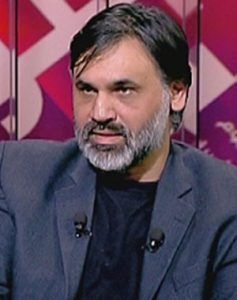February 20, 2018
By Mustafa Fahs (Asharq Al-Awsat)
Western countries have repeatedly asked Russia to pressure Iran into pulling the militia groups under its control out of Syria. Meanwhile, Moscow has been trying to defuse the tensions between Tehran and Tel Aviv. Russia’s influence could wane significantly in the region if the war of words between Tel Aviv and Tehran were to escalate to a military conflict.

Russia entered the Syrian conflict with only 25 Fighter Aircraft, six warships, 3,000 soldiers, and military advisers, as well as a few private security firms. From the start, Moscow knew that it could not manage the Syrian conflict with such a small military force. At the same time, President Putin was reluctant to put more boots on the ground in Syria, fearing the repeat of the 1989 defeat of Soviet forces in Afghanistan.
Russian military advisers also gave up any hope of rebuilding the Syrian Army loyal to Bashar al-

Assad. Moscow, therefore, had to use the Islamic Revolutionary Guards Corps (IRGC) and the militia forces controlled by Iran as ground troops. As a result, Iran was able to strengthen its presence in Syria and gradually become one of the leading players in the conflict.
Tehran has managed to protect its interests in Syria and operate with a considerable degree of independence, a fact that has concerned Moscow. Despite its back-channel dealings with Tel Aviv, Moscow has, nevertheless, made many concessions to Iran in Syria.
Although Moscow doesn’t dispute Israel’s concern about Syria, it cannot ignore Tel Aviv’s provocative military actions against Russian, Iranian and Syrian interest including the attack on Tiyas Military Airbase (T4 airbase) on February 10. Moscow has warned Tel Aviv that its aggressive military action against Assad would make it difficult to manage the crisis in Syria, and would only encourage Iran-backed militia and Muslim extremist groups to attack Israel directly. Moscow believes that a full-blown war would hurt the interests of all parties.
Israel is well aware of the fact that without the Russian military’s radar tracking system at Hmeimim Air Base, the Syrian and Iran-backed militia could not have shot down one its air force F-16 fighter jets on February 10. It is clear that Moscow was sending a message to Washington and Tel Aviv.
Moscow doesn’t want Iran to be the only player in Syria. It has also signaled Israel and the U.S. that it is prepared to work with the Western powers to prevent an all-out-war in the region. Israel also doesn’t want to engage in a major armed conflict in the region. Meanwhile, Iran has continued to expand its sphere of influence in Syria.
Michael Oren, the Deputy Minister in Prime Minister Netanyahu’s office, recently said: “Russia holds all the cards in the regional game. It can prevent a border confrontation between Israel and Iran-Syria forces.”
Moscow is trying to use the recent military clash between the Iran-backed Syrian Army and the Israeli Air Force as a starting point to reach a peaceful agreement. It has asked Iran to keep the militia groups under its control at a distance of 30 kilometers from the northern borders of the occupied Palestinian territories. In Return, Tel Aviv will not object to Tehran’s influence in Syria.
Moscow believes that it stands to lose the most if the current clashes between Iran-Syria forces and Israel were to escalate into a major armed conflict. By using the IRGC ground troops in Syria, Moscow has, in effect, aligned its interests with that of Tehran.
Meanwhile, Western countries have said that they would recognize Russia as the principal peace broker in Syria only after it has severed its ties with Iran.








